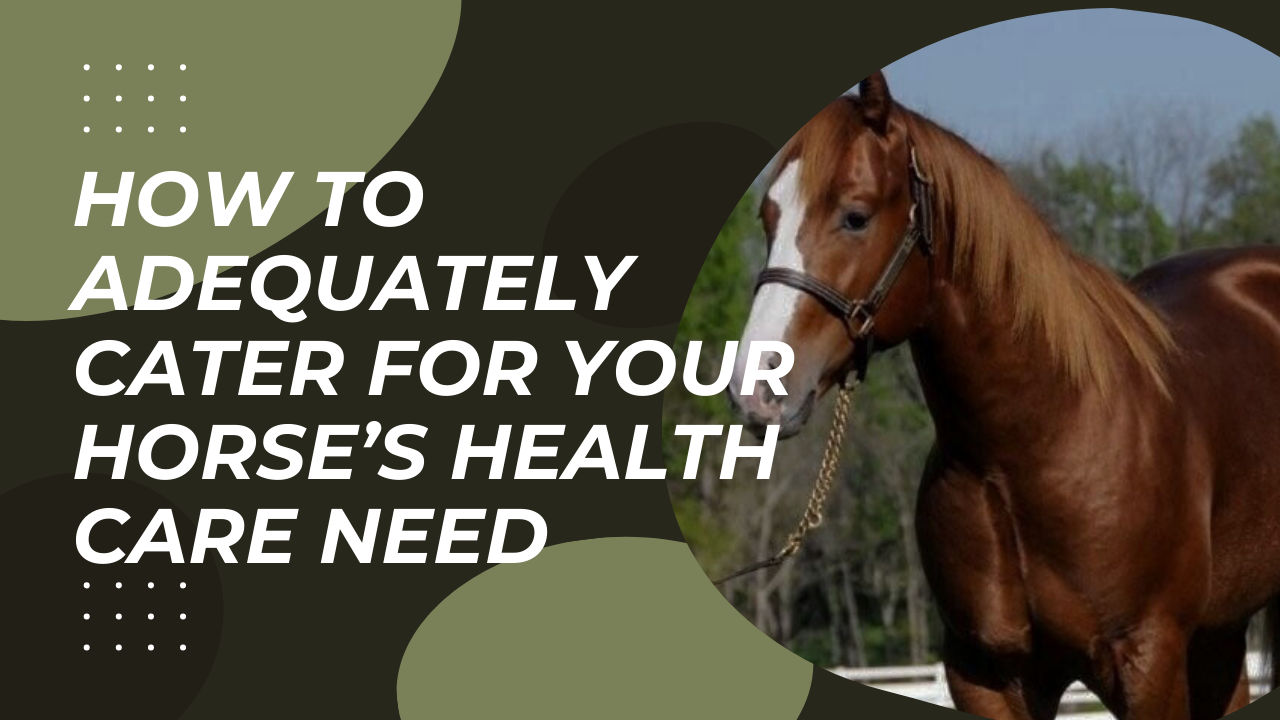Horses are often kept either as pets, for competitive games or for pleasure riding. Horse ownership is a rewarding experience. However, these wonderful companions come with some responsibilities and commitments requiring significant effort, resources and time. The onus to ensure horses are properly fed, in good health and sustained agility is one that every horse owner must legally uphold. This responsibility usually demands special know-hows, facilities and time. Breeding horses require adequate feeding and close monitoring to ensure that they are neither round-rump big belly fat nor too thin. Their fitness and regular exercise must equally be coordinated, and their general health care should be well managed too.
Horse Care Needs
- Grooming
As an important horse daily care maintenance, grooming entails brushing and currying of your horse in a bid to remove bacteria fostering debris and dirt. If you daily groom your horse, you will be able to monitor its overall bodily condition, quickly spotting sores, injuries, welts and infection. During summer, you may even choose to bathe your horse with shampoo, at times. Horses generally enjoys grooming. It keeps them tidy and clean.
- Dental Care
At least once every year, you should ensure your horse gets a dental checkup by an equine dentist. Horses below 5 years should be checked, at least, twice every yearly. This is even more essential if your horse is perpetually kept in a paddock. There is a potential for horse teeth to become uneven and sharp, if left unchecked and untrimmed; thereby causing month injuries and avoidable pain to the horse.
The common signs of potential dental problem include, reluctance to chew, quidding, bad breath, gum disease and sore mouth.
- Hoof Care
This should be done on a regular basis, mostly, during horse grooming. It entails the picking of the hooves, removing stones, dirt and manure from the hooves. Also, there is a need to further check for signs of possible discoloration, bruises or discharge from the hooves. Hoof dressing will be needed if they appear worn or too tight. Ensure you apply antifungal solution to your horse hooves every week during winter, in order to prevent thrush or infection. Also, the hooves must be trimmed at least once every 6-8 weeks. This procedure should be better handled by a trained farrier.
- Veterinary Care
Like every other animal, sicknesses are more common in ageing horses. Consequently, adult horses are expected to be taking for veterinary checkup, at least once yearly while geriatric horses or horse above 20 years should be prioritized for, at least, twice yearly or more frequent checkup.
- Horse Deworming and Vaccinations
You should have a daily feed dewormer for your horse and a periodic deworming program every 4 – 8 weeks. This is to be adequately manage and control parasitic attack. Similarly, the common disease that horses need to be vaccinated against includes strangles, tetanus and viral respiratory disease.
Unfortunately, no single parasite control plan suits all situations and horses, therefore, depending on the age of your horses, and habitant characteristics, your veterinarian should better advise you on specific vaccination needs and how often they must be applied.
Conclusively, you should check your horse for common signs of illness like loss of appetite, sneezing, coughing, strange discharge and diarrhea. Other red flags symptoms include loss of hair, reluctance to move, itchy skin and head bobbing. Always consult a veterinarian when you cannot decipher noticeable health challenges.
